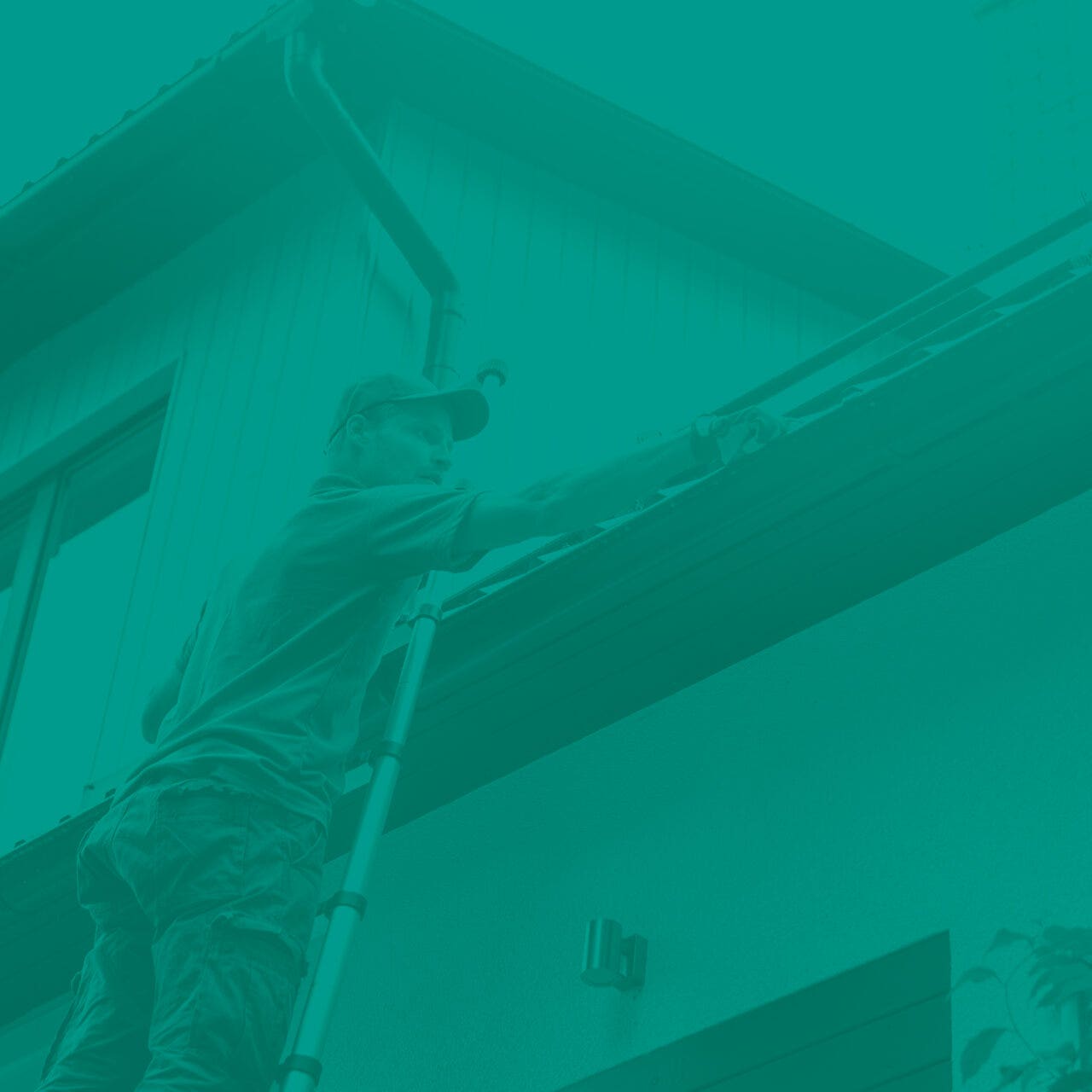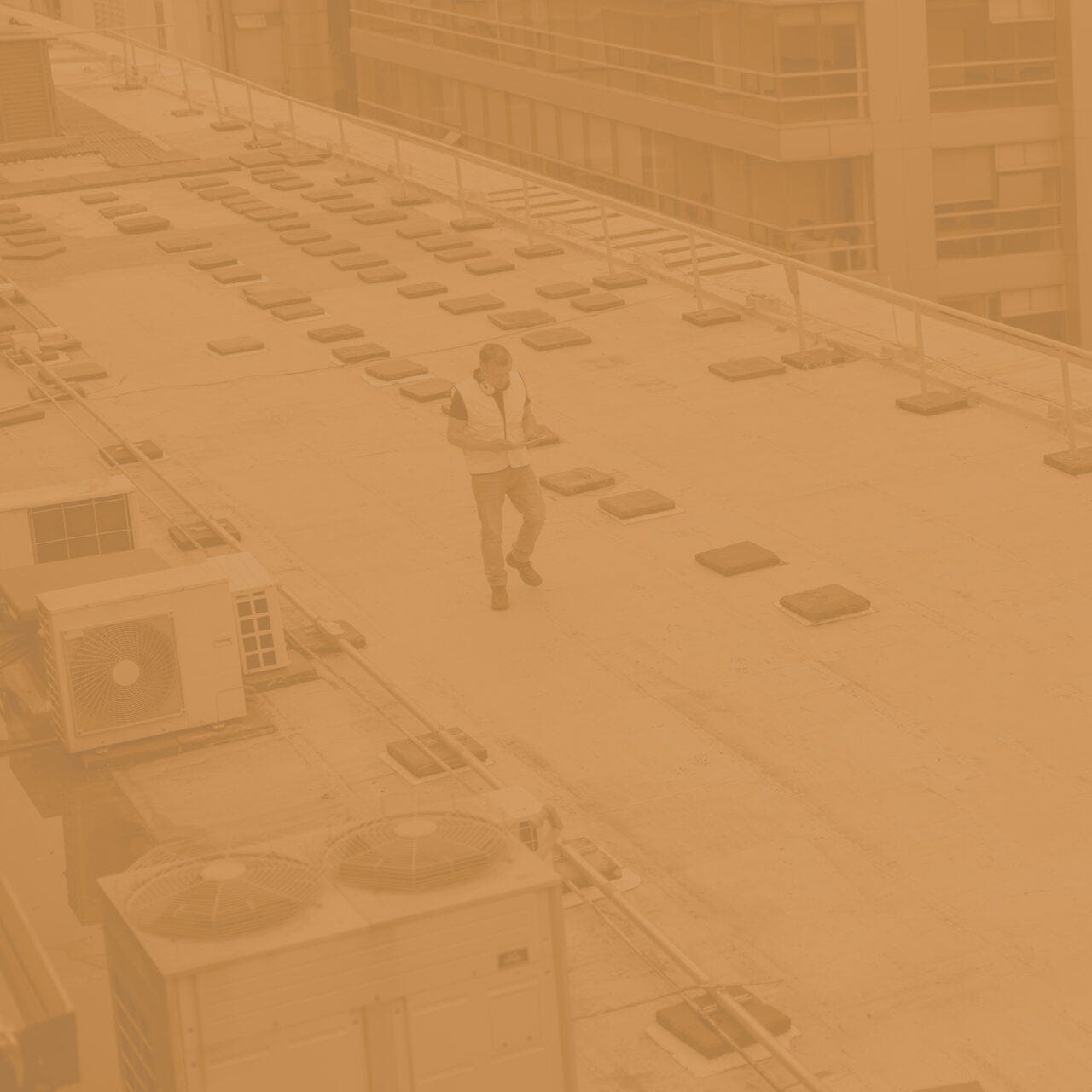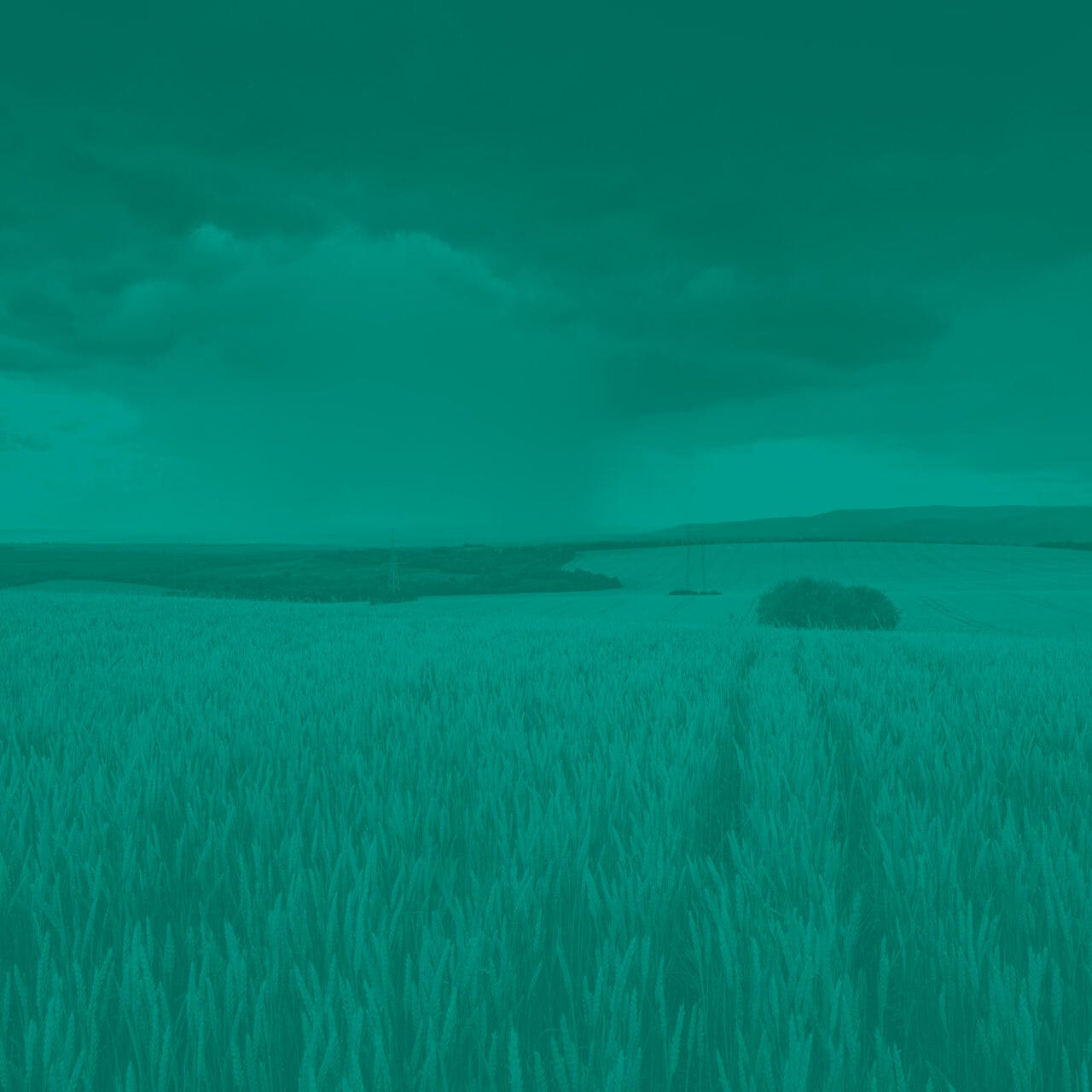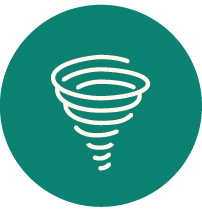
Hail preparedness guide: How to minimize damage to your home, vehicle, business or farm
Hail season in Canada typically occurs between June and September, often hitting the Prairies hardest in July.
Hailstones can range in size — as large as a softball in extreme cases — and fall at speeds ranging from 25 km/h to more than 170 km/h, depending on the size of the stone. As a result, hail causes extensive property damage by shredding siding and shingles, denting vehicles, shattering glass and destroying crops in a short window of time.
Acera Insurance does more than just provide coverage to protect against a variety of threats — we also aim to empower our clients with the knowledge and tools they need to effectively navigate and minimize risks to their home, vehicle, business, farm and livelihoods.
Our hail preparedness guide outlines the proactive measures you can take to minimize hail-related damage to your home, business or farm. We also explain the types of insurance policies that typically cover hail-related damages and related losses for your home, vehicle, business or farm. Lastly, we provide guidance on what steps to take if you need to file a hail-related insurance claim.
Contents
- Prepare your home and vehicle for hail
- Understanding hail insurance for your home and vehicle
- Prepare your business for hail
- Understanding hail insurance for your business
- Preparing your farm for hail
- Understanding hail insurance for your farm
- Staying safe during a hailstorm
- How to file a hail insurance claim
- Answers to your frequently asked hail insurance questions
- Additional severe weather resources
Hail information for individuals
Prepare your home and vehicle for hail
Hail can cause extensive damage in a short period of time, and the storms are typically fast moving — which is why it’s best to prepare in advance.
- Regularly clean and remove debris from your eavestroughs to ensure proper drainage.
- Inspect your roof and repair any damaged or worn areas.
- Inspect your vinyl siding and repair any damaged or worn areas.
- Maintain and prune trees to prevent broken branches or limbs from hitting your home.
- Cover outdoor property such as patio furniture, barbecues, plants and yard equipment, or move these items inside a garage or shed, if possible.
- Consider using hail-resistant roofing and exterior finishings on your home. Check to see if your municipality offers an incentive or rebate program for doing so.
- Consider using a window safety film, which can help prevent glass from shattering.
- If possible, always park your vehicle under cover such as in a garage or carport.
- Invest in portable hail protection that can be stored in your trunk (such as an inflatable cover or hail blanket), particularly if you live in a location prone to heavy hail.
- As a last resort, you may consider securing blankets, a thick comforter, floor mats or even collapsed corrugated cardboard boxes over the roof, windshield and hood of your vehicle; this can help soften the impact of hailstones.

Understanding hail insurance for your home and vehicle

Most standard home insurance policies provide coverage for hail damage caused to your house and other structures on your property such as a garage or shed.
That said, there are some exclusions that you should be aware of.
One is your responsibility, as outlined in your policy, to maintain your property — particularly your roof and siding in the case of hail. This means coverage for any hail damage could be limited, or your claim denied, if you have not been properly maintaining and caring for your roof and siding (especially vinyl siding).
The second is that more insurers are adding cosmetic damage exclusions in response to the escalating number of hail claims. This exclusion means claims related to damage that only affects appearance, and not the function or integrity of your home, could be denied.
You selected a deductible when purchasing your home insurance. This is the amount you have agreed to pay out of pocket for any covered claim.
For example, if your property suffers $2,000 in hail damage and your policy has a $500 deductible, your insurer will pay a maximum of $1,500 for the claim.
If you have any questions about the deductible listed in your home insurance policy, please contact your Acera Insurance advisor.
Hail damage is also typically covered as part of condo insurance or tenant insurance policies. As a condo owner or renter, you will not be responsible to cover hail damage to the property itself; however, the hail coverage afforded to you in these policies helps to protect your personal belongings. These policies also offer additional living expenses, which can help cover your extra costs if you must temporarily relocate if your unit is uninhabitable while undergoing repairs or replacements due to hail damage.
Adding comprehensive coverage (which is an optional endorsement) to your auto insurance policy can provide coverage in the event your vehicle is damaged by hail; however, hail damage may not be available in some areas.
Auto insurance policies include a deductible, an amount that you selected when purchasing your policy. A deductible is the amount you have agreed to pay in the event of an insured loss. For example, if your vehicle sustains $1,500 worth of hail damage and the deductible in your auto policy is $500, you will receive a maximum of $1,000 from your insurer.
Keeping and maintaining a home inventory list (we recommend you update your list at least once a year) can help streamline the claims process should your property sustain hail-related water damage that is covered by your policy. Here are four tips to help you create and safely store a home inventory list:
- Walk around your house and document your possessions; you can record these details either in a list or by taking photographs. Try to capture a detailed description of the product, a serial number, the purchase date and estimate value.
- Keep and safely store your receipts. If you’re trying to minimize paper clutter, save your receipts digitally.
- You may want to consider creating 360-degree view videos of both the interior and exterior of your property, as this can help you keep track of your items and any upgrades to your property.
- Store your home inventory in a safe spot — including keeping one copy offsite. Digital copies should be backed up.
Do you have questions about hail insurance for your home and vehicle?
If you have questions about whether your home, condo, tenant or auto insurance policy and any endorsements protect you from hail damage, or if you have additional questions, please contact a member of our team.
Hail information for businesses
Prepare your business for hail
You don’t need to have an engineering or finance background to effectively manage your business risks. Below we outline some tips that can help your business start with the careful planning and diligence required to protect your business property from potential hail damage.
- Regularly inspect and properly maintain your roof: Have a certified roofing consultant examine your roof for any signs of wear, tear and damage at least twice a year. When replacing or updating your roof, consider using hail-resistant materials.
- Protect HVAC equipment located on your roof: The best line of defence is to opt for exterior HVAC equipment that can withstand hail strikes. Another solution is to install protections such as hail guards, shields or wire mesh around your equipment to minimize hail damage.
- Inspect and protect skylights: Any signs of cracks, embrittlement or discolouration due to weathering or old age could serve as signs that your skylight could be easily damaged by hail; replace your skylights as necessary. If your business is in an area prone to hail, consider using hail-resistant guards such as screens or steel wire mesh around your skylights, or install skylights that are approved as impact resistant.
- Protect your company vehicles: The best approach to protect your vehicles from hail damage is to move them under cover. This may include delaying any trips when forecasted hail is imminent. If a garage, carport or other shelter system is not available, consider investing in hail covers to protect your company vehicles.

Understanding hail insurance for your business

Commercial property insurance typically provides coverage for hail damage.
In addition to the structure itself, commercial property insurance also provides coverage for your business contents and assets, which could be damaged by hail, including but not limited to:
- Exterior signage
- Fencing and landscaping
- Lighting fixtures
- Windows
- Tools and equipment
It’s important to note, however, that commercial property insurance will not provide coverage if your business is forced to close for a period of time to allow for the repair, replacement or rebuilding of your hail-damaged property. In this case, you’ll need to have business interruption insurance, which can assist with lost income in the event of an insured loss (like hail damage) and help cover operating expenses, the move to a temporary location, payroll, loan payments and more.
Please contact an Acera Insurance advisor if you have any questions regarding the hail coverage your business insurance policy offers.
Assessing your business inventory on a semi-annual or annual basis and maintaining an up-to-date detailed list of your stock, products, contents and/or equipment — including receipts or invoices for these items — can help streamline the claims process in the event of an insured hail loss.
Documenting with photographs or 360-degree videos both inside and outside your business premises can also help you keep track of items and upgrades.
We recommend that you keep a copy of this list and photographs off site, as well as provide them to your Acera Insurance advisor.
Hail information for farms
Preparing your farm for hail
- Regularly clean and remove debris from your eavestroughs to ensure proper drainage.
- Inspect the roof on various buildings around your farm at least once a year and repair any damaged or worn areas. Not maintaining your roof, particularly on your home, may result in a denied hail claim.
- Install protective shields or screens to protect any rooftop equipment.
- Maintain, prune or remove trees to prevent broken branches or limbs from hitting your home.
- Create an action plan for moving your livestock under shelter, where possible, in the event of a hailstorm.
- Ensure your farm equipment, vehicles and other valuable items are stored in a covered building, wherever possible, to avoid damage in the event of a hailstorm
- Install hail netting on crops.

Understanding hail insurance for your farm

Crop hail insurance is one of the most common coverages that can help you recover lost income if hail damages your crops — no matter if the storm has reduced your overall yield or caused a total loss. Crop insurance is a separate policy and not included under a standard farm insurance policy.
Property insurance, livestock insurance and auto insurance policies can also provide hail coverage for various aspects of your farming operations.
It’s important to understand some common hail limitations that may factor into your insurance claim. One is roofing limitations on a home insurance policy, such as limited coverage for an older roof as well as cosmetic damage exclusions. Another is that there is a dent clause for outbuildings, meaning damage to these structures will only be covered in the event that a hailstone creates a hole or opening.
Contact an Acera Insurance advisor to discuss the hail coverages available to protect your farm.
Staying safe during a hailstorm
- Go indoors, if possible, and keep away from windows, doors and skylights.
- If caught outdoors and unable to access safe shelter, crouch down, facing away from the wind, and use your hands to cover your head and neck to minimize any potential injuries.
- Again, if outdoors, stay away from trees, towers, and metal fences and poles to avoid possible injury from lightning.
- Localized flooding can happen quickly during heavy hail and rainstorms; therefore, it’s best to avoid low-lying areas and storm drains if stuck outdoors.
- If you’re driving when a hailstorm hits, try to find a safe place to pull completely off the road (note: do not stop under bridges or overpasses as this can cause a collision). Once completely pulled over in a safe spot, face away from all windows to protect yourself should the hail shatter the glass.
How to file a hail insurance claim
Follow these steps if you have experienced property damage related to a hailstorm:
- Contact us at your earliest convenience — we’re here to help through the entire claims process.
- Document the damage once it is safe to do so; take photographs and detailed notes.
- Keep all receipts related to cleanup, repairs or replacements.
You can find answers to common claims questions here.
Answers to your frequently asked hail insurance questions
Hail-related claims are among the costliest in Canada, causing millions of dollars in insured losses each year, if not more — particularly in the Prairie provinces.
For example, according to the Insurance Bureau of Canada, notable hailstorms in Alberta and Manitoba caused $250 million in insured losses in 2023, while the hailstorm that hit Calgary in June 2020 resulted in more than $1.3 billion in insured damages alone.
It will depend on if you have opted to include comprehensive coverage as part of your auto insurance policy. Comprehensive coverage can help cover repairs or the replacement of your vehicle if it is damaged by something other a collision — such as from theft and vandalism, hailstorms or falling objects.
Remember, all auto insurance claims are subject to a deductible, which is the amount you agreed to cover in the event of an insured loss, like hail damage.
Yes, your landlord will be responsible for any hail damage to the structure itself. Your tenant insurance policy, however, still provides coverage if your personal property is damaged by hail — for example, if the impact of hailstones smashes the windows of your rental property, resulting in damages to your belongings within your unit.
Furthermore, your tenant insurance policy can provide additional living expenses coverage if you have to temporarily relocate (i.e., stay in a hotel) while your landlord makes repairs to your building following a hailstorm.
Condo insurance also provides coverage for your personal belongings and additional living expenses, even though your condo corporation would be responsible for responding to structural hail damage.
This will depend on several factors including:
- Your coverage limit
- Your deductible, where applicable (i.e., home insurance, commercial property insurance)
- The amount of damage sustained
- Any co-insurance penalties (learn more about co-insurance in our 2024 market forecast)
- If you’ve opted to be reimbursed for losses based on replacement cost (actual cash value, which includes a depreciation calculation) or replacement cost (no depreciation factored into the calculation).
If you have any questions about the hail coverage your policy offers, please contact an Acera Insurance advisor.
Additional severe weather resources

Flood preparedness guide
Learn how to insure your home and business against flooding and how to minimize flood damage.

Wildfire preparedness guide
Learn how to insure your home and business against wildfires and how to minimize damage caused by these blazes.

Earthquake preparedness guide
Earthquakes are unpredictable and can cause significant damage to homes, vehicles, businesses and farms in a short period of time. While some parts of Canada are more prone to earthquakes, a tremor can strike anywhere. These tips can help you be prepared.

Tornado preparedness guide
Tornadoes can form quickly, resulting in extreme winds and thrown debris that can cause extensive damage to homes, vehicles, businesses and farms in a short period of time. While parts of Canada are more prone to tornadoes, a twister can touch down anywhere. These tips can help you be prepared.

Hurricane preparedness guide
Learn how to insure your home, business or farm against hurricanes and how to minimize damage caused by these storms.
